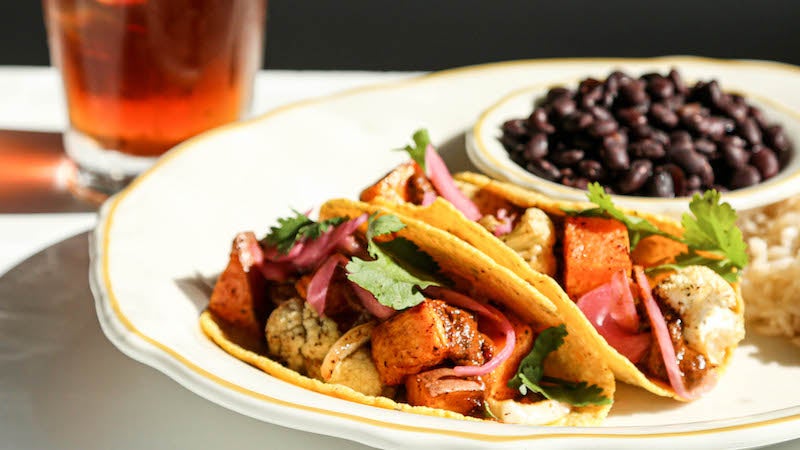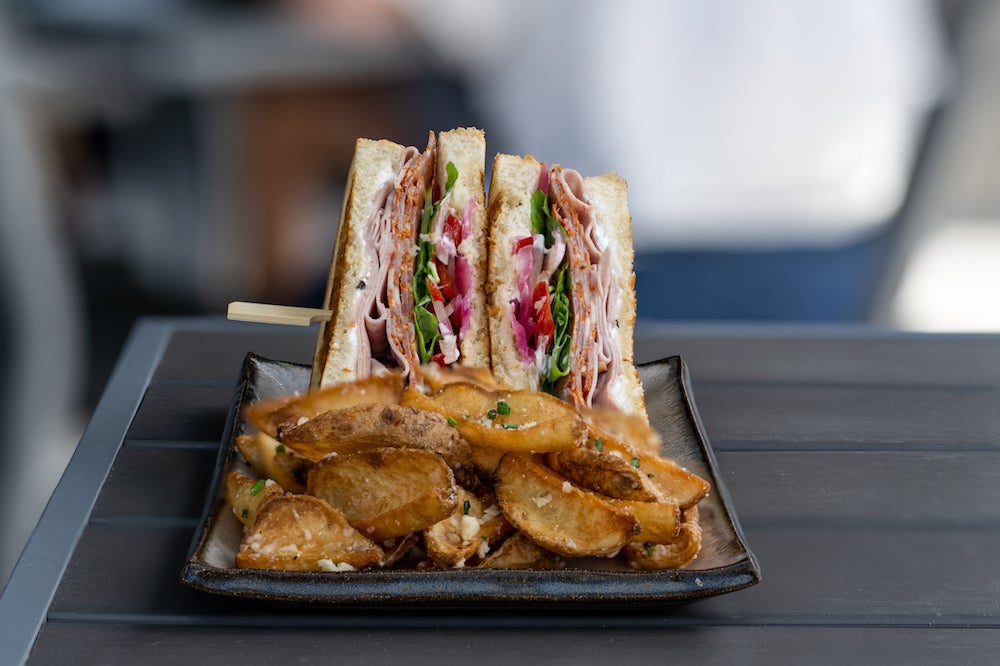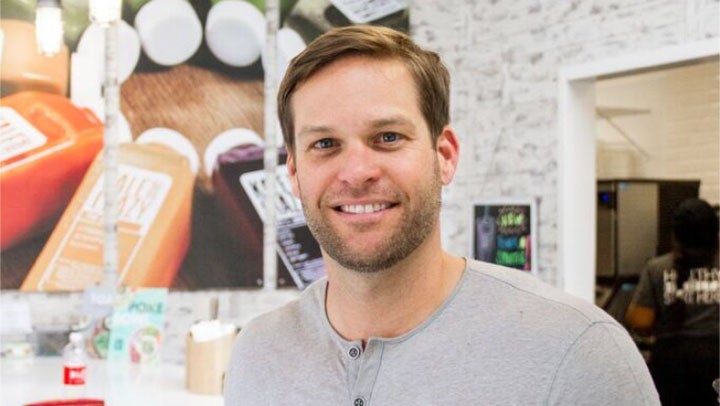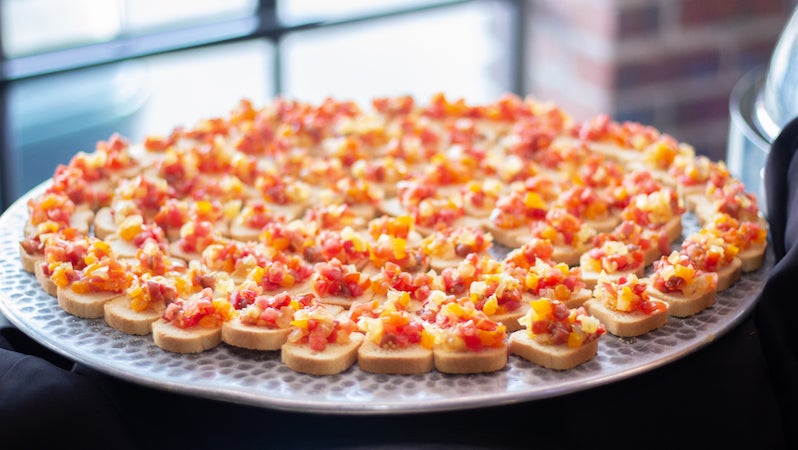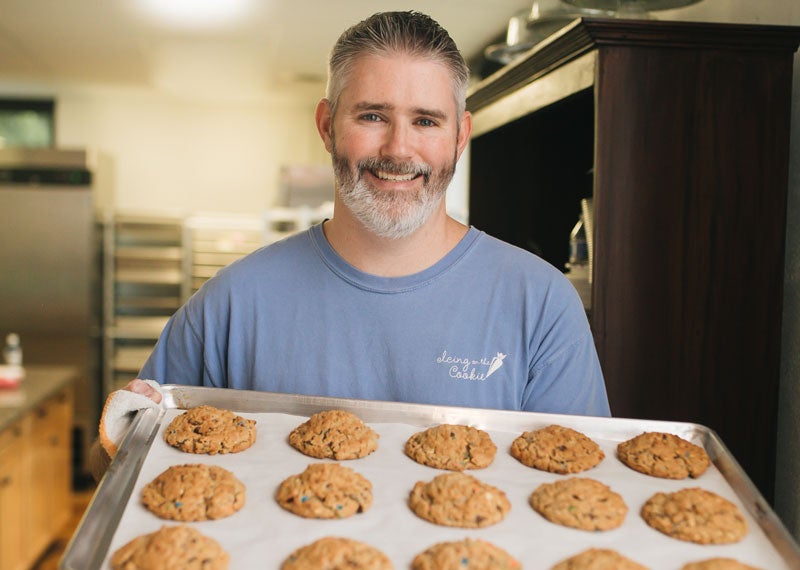By Amy Holditch
Photos by Angie Mosier
Joshua Gentry is busy.
In between running Little Donkey on Central Avenue, he is also hands-on at the Mexican restaurant’s new location under construction on 18th Avenue South and their outposts in Montgomery and Greystone. Each morning he arrives—often by bike—at one of the three restaurants by 9:30 a.m., and while he always has plenty of administrative duties to keep him busy, he can’t stay away from the food itself. “I like to work a little prep because, quite honestly, I like to hang out with the folks in the kitchen,” he says. “Our team is strong and diverse, and I love being with them. They are talented cooks that I’ve learned a lot from, and most of them have worked with us for years.”
Little Donkey’s move to 18th Street is set to take place in November, just a few months shy of its 10th anniversary. “It’s great to have a first-class, new facility in which to work,” Joshua says of the new space. “We will have a large bar, with a dynamic, refreshed bar program and will of course have a big patio that looks out over 18th Street.”
The interiors will be lively and fresh with lots of greens, desert rose and earth tones as well as golds that nod to the corn that is so important to the restaurant’s ingredients, the food’s heritage and traditional techniques. Wood, tile, metal, glass and leather compliments will add additional texture to the space as well.
Altogether the new location will have almost 17,000 square feet of total space, which will include an outdoor dining area in front of the restaurant. “The move felt like a great continuation of the neighborhood’s ‘main street,’ and we wanted to be a part of that,” says Joshua.
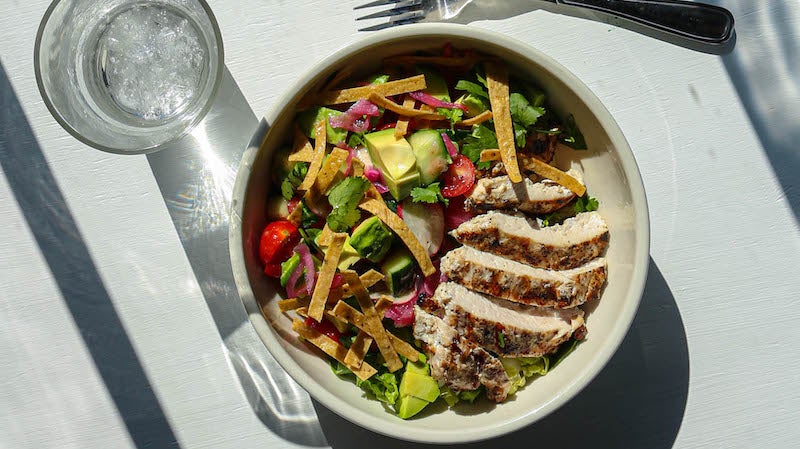 “My partner, Nick Pihakis, and I met Mike Mouron, who had already been a customer of Little Donkey,” he goes on to explain. “Mike is the visionary who developed that area, starting with the beautiful Valley Hotel. We were inspired by what he was doing and really wanted to be to be a part of that particular development. So we began talking about it, and we were all eager to work together to do something great for that little part of our city. Now Pihakis Restaurant Group, of which Little Donkey is part of, will also have a Rodney Scott’s BBQ next door.”
“My partner, Nick Pihakis, and I met Mike Mouron, who had already been a customer of Little Donkey,” he goes on to explain. “Mike is the visionary who developed that area, starting with the beautiful Valley Hotel. We were inspired by what he was doing and really wanted to be to be a part of that particular development. So we began talking about it, and we were all eager to work together to do something great for that little part of our city. Now Pihakis Restaurant Group, of which Little Donkey is part of, will also have a Rodney Scott’s BBQ next door.”
The restaurant is an endeavor that he sees as being as much about people as the food itself. “The way I look at the restaurant business is that you work in this team where there are all kinds of folks who come from every walk of life,” he says. “So truly, the cooks and servers that work in Little Donkey are my biggest inspiration. There is something to be learned from every bite of food and every table you sit at.
“Developing that team takes appreciation, respect and trust. One of my mentors, partner Nick Pihakis, instilled that in all of us,” he continues. “All day, every day is one big puzzle with different issues to deal with each day. If you approach all of the problems, issues and good things well with appreciation, respect and trust it will create a great environment for a team and success.”
With the move to 18th Street will come new menu items that will feature Gulf seafood in small plates and entree selections, but the core of its culinary vision remains. The menu offers authentic Mexican food with a Southern flair, combining traditional Mexican techniques like grinding masa, pressing tortillas by hand and mixing fresh salsas, with the Southern heritage of slow-smoked meats. On it you’ll find award-winning fried chicken, hickory-smoked brisket fajitas, fried catfish tacos, house-made salsa and guacamole, and more. Every flour and corn tortilla is handmade within the restaurant where they soak their corn to prepare it for grinding, and then press and cook on the comal (a flat griddle) in the kitchen. Their corn chips are made from heirloom Mexican corn grown on small farms sourced through Masienda, a company that connects the farmer’s corn to the end user.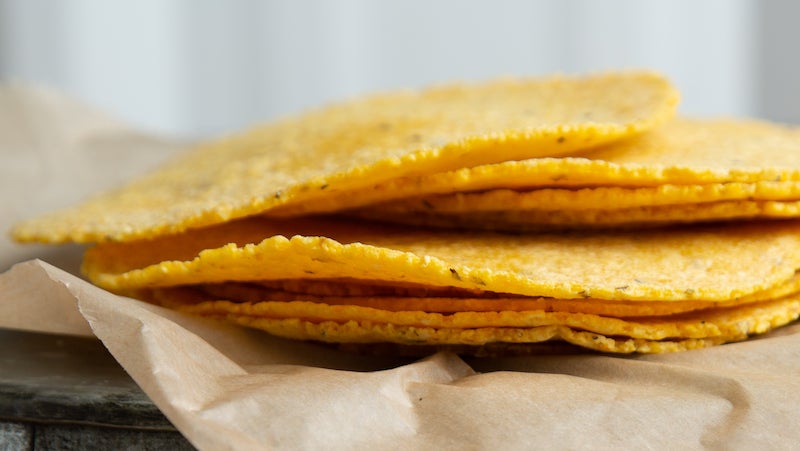
But they are always trying new things at the restaurant too. “We have been working on soft serve ice cream in the restaurant, and it has been really fun,” Joshua says. “Some of the recipes have worked great and some have not, but that’s the fun of working out a recipe.”
With COVID still raging through the South, Joshua told us that the past year “challenged us in so many ways and forced us to get better in the areas that we didn’t execute very well.
“When you are busy with the day-in-and-day-out duties associated with the restaurant, you sometimes can’t see the forest for the trees or even know that there is a way to streamline operations or come up with a creative way to serve our guests better until you are forced to do it,” he says. “COVID really caused our entire group to assess our way of doing business every day. It not only helped us operationally but allowed us to see the restaurant with new eyes and evaluate the importance of our relationships.”
And indeed Joshua is always attuned to relationships as he starts and ends each day at Little Donkey, in the same neighborhood where he’s lived with his wife, Julie, for more than 20 years. Case in point: Louis Armistead, the younger brother of former employee Ethan Armistead, was eating in the restaurant one day when Joshua came over and asked him if he wanted to come into the kitchen and make tamales with him. And that’s just what they did. “It was a very cool experience,” Louis says.
“We appreciate our team members, guests and the community at large even more and in a new way,” Joshua adds. “Take care of all of your people—your guests, your staff, your partners, your community. Once you open your doors, you belong to everyone—it’s like opening your home to people.”
Smoking Hot Neighbor
When Little Donkey moves to 18th Street, it will have one of the hottest restaurants in the nation as a neighbor. Pitmaster Rodney Scott has worked barbecue pits cooking traditional Carolina-style whole hog barbecue since he was 11 hears old in his family’s restaurant in Hemingway, South Carolina. In 2017, Rodney partnered with Nick Pihakis of the Birmingham-based Pihakis Restaurant Group to open the first location of Rodney Scott’s Whole Hog BBQ on King Street in Charleston. Just a year after opening, Rodney was awarded the James Beard Foundation’s Best Chef Southeast medal. Rodney loves Birmingham, and in 2019 he and Nick opened a second location in the Avondale neighborhood, where smoke from the wood-fired pits lures diners both local and those passing through. Since then, Rodney has been featured multiple times on national broadcasts like the Today Show where recently along with Al Roker he fed Alabamians who were displaced by recent tornadoes. Netflix produced an episode about Rodney on their popular series Chef’s Table where the pitmaster tells his story with such emotion and authenticity that he has gained fans from all over the globe. Rodney, along with the Little Donkey, Hero Doughnuts and Buns and the team from the Pihakis Restaurant Group, also fed Homewood first responders and construction workers during the recent COVID shutdowns.

